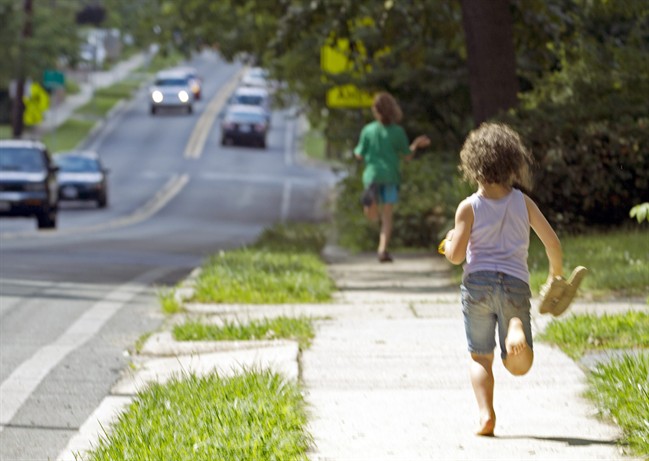A new 50-year study says spanking children is pretty much as harmful as child abuse.

“We as a society think of spanking and physical abuse as distinct behaviours,” said Elizabeth Gershoff, an associate professor of human development and family sciences at the University of Texas.
“Yet our research shows that spanking is linked with the same negative child outcomes as abuse, just to a slightly lesser degree.”
Spanking is defined as “an open-handed hit on the behind or extremities” in the study. Physical abuse, meanwhile, is described by the RCMP as “the intentional use of force against a child resulting in injury or causing bodily harm.”
Both, according to the research, are “associated with the same detrimental child outcomes,” including:
- increased mental health problems
- cognitive difficulties
- aggression and
- anti-social behaviour
The study, published in this month’s Journal of Family Psychology, couldn’t find a link between spanking and immediate or long-term compliance, which is usually what parents hope to achieve when they discipline their kids.
Instead, the researchers (who studied over 160,000 children) discovered the more kids were spanked, the more likely they were to defy their parents.
“Spanking thus does the opposite of what parents usually want it to do,” said co-author Andrew Grogan-Kaylor of the University of Michigan.
READ MORE: Kids often don’t even understand why they’re being spanked, 2014 study suggests
He and Gershoff argue that people who were spanked as kids are “more likely to support physical punishment for their own children.”
Another study from a couple years ago found those who were spanked as children were also more likely to engage in criminal behaviour later in life and have lower IQs. Researchers think the latter is because fear of corporal punishment is a chronic stressor that impairs learning.
Despite all the evidence that spanking can harm children‘s behaviour and development, it’s still practiced by as many as 80 per cent of parents around the world, according to a 2014 UNICEF report.
And not all experts are against it. Dr. Gerald Robert Farthing at the University of Saskatchewan has been a child development psychologist for decades and told Global News in January that while he doesn’t think teachers should be able to punish children physically, parents under the right circumstances should.

Get weekly health news
“For me I think the context is very important,” he said. “If we have a loving parent relationship where along with it comes the instruction or the training or the talking, then spanking as a resource along the line can be a very effective strategy.”
Should spanking be banned?
The practice has been banned in nearly 50 countries around the world, beginning with Sweden in 1979.
WATCH: Spanking children could soon be illegal in Canada

Canada’s Liberal government is currently looking at repealing Section 43 of the Criminal Code, which allows parents to use physical force to discipline their children.
As it stands right now, Canadians aren’t allowed to use physical discipline on children less than two years old, and can’t hit children with objects such as a belt or administer blows to a child’s head.
This past January, a British Columbia mother and father who used a plastic hockey stick and a skipping rope to spank their 14-year-old daughter were found guilty of assault with a weapon.
WATCH: B.C. parents convicted of assault for spanking teen

The judge considered the punishment to be degrading.
“The parents took no educative or corrective steps by seeking out expert help or any other assistance to discuss their daughter’s actions with her. Their actions were solely punitive and not corrective,” he said.
READ MORE: Are time-outs as bad as spanking?
Alternative forms of discipline
“We hope that our study can help educate parents about the potential harms of spanking,” Gershoff said, “and prompt them to try positive and non-punitive forms of discipline.”
Many parents don’t differentiate between punishment and discipline, though, when it comes to raising their children. Parenting experts says there’s a big difference between the two, and understanding that can be a crucial tool for helping mothers and fathers.
WATCH: Dos and don’ts of doling out discipline
Dr. Shimi Kang, a Vancouver-based psychiatrist and parenting author, has a four-step alternative to spanking:
- Start by calming yourself down.
- Put yourself in your son or daughter’s shoes and tell them, “I know you wanted that cookie” or “I know you want to play outside.”
- Next, remind your kids of their own goals and explain to them that acting out won’t help their cause.
- Finally, give them an optimistic message – let them know you believe they can behave better.
With files from Carmen Chai, Global News and The Canadian Press




Comments
Want to discuss? Please read our Commenting Policy first.